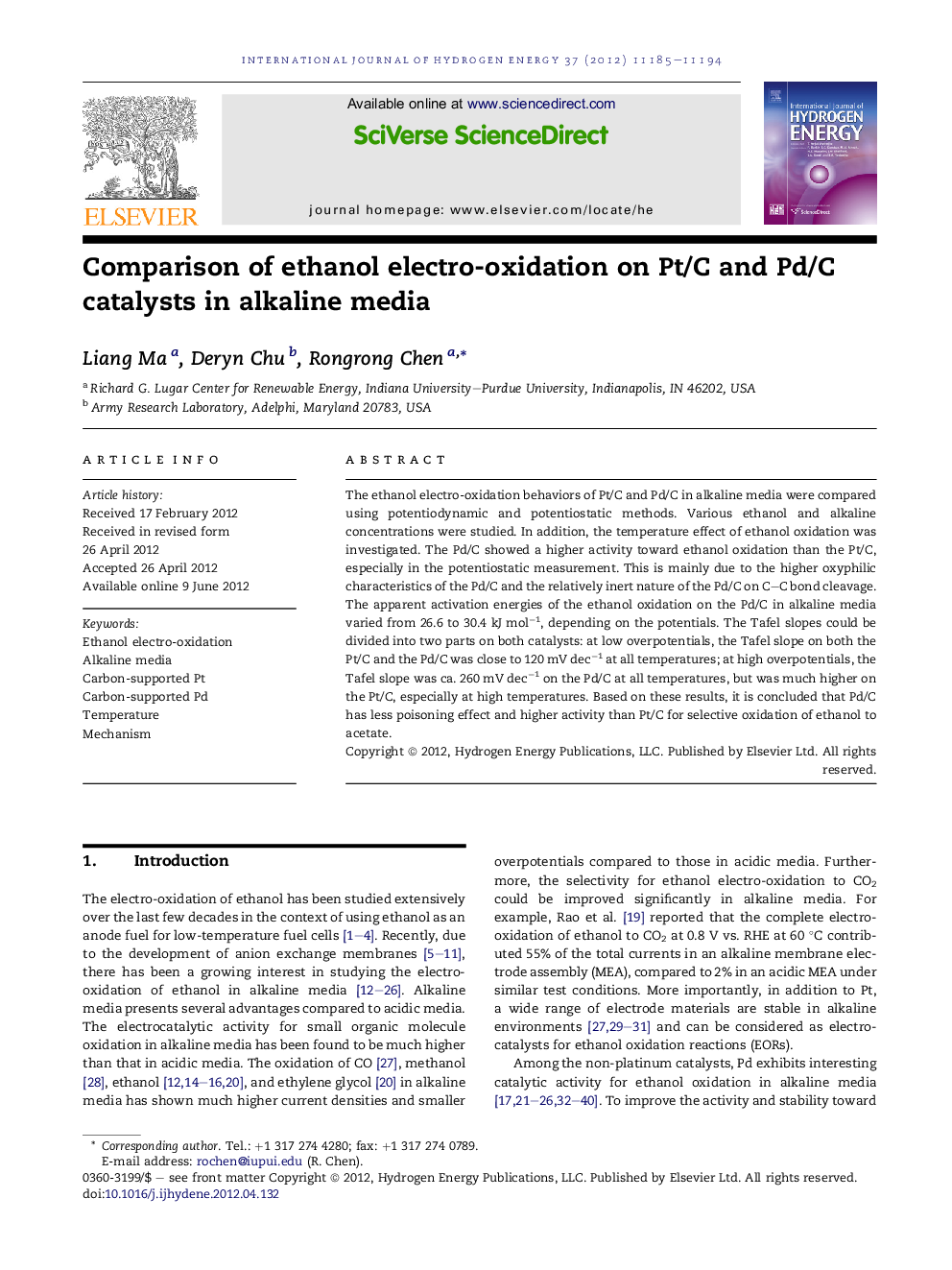| Article ID | Journal | Published Year | Pages | File Type |
|---|---|---|---|---|
| 1276282 | International Journal of Hydrogen Energy | 2012 | 10 Pages |
The ethanol electro-oxidation behaviors of Pt/C and Pd/C in alkaline media were compared using potentiodynamic and potentiostatic methods. Various ethanol and alkaline concentrations were studied. In addition, the temperature effect of ethanol oxidation was investigated. The Pd/C showed a higher activity toward ethanol oxidation than the Pt/C, especially in the potentiostatic measurement. This is mainly due to the higher oxyphilic characteristics of the Pd/C and the relatively inert nature of the Pd/C on C–C bond cleavage. The apparent activation energies of the ethanol oxidation on the Pd/C in alkaline media varied from 26.6 to 30.4 kJ mol−1, depending on the potentials. The Tafel slopes could be divided into two parts on both catalysts: at low overpotentials, the Tafel slope on both the Pt/C and the Pd/C was close to 120 mV dec−1 at all temperatures; at high overpotentials, the Tafel slope was ca. 260 mV dec−1 on the Pd/C at all temperatures, but was much higher on the Pt/C, especially at high temperatures. Based on these results, it is concluded that Pd/C has less poisoning effect and higher activity than Pt/C for selective oxidation of ethanol to acetate.
► The ethanol oxidation behaviors of Pt/C and Pd/C at varying ethanol and alkaline concentrations were studied. ► The temperature effects of ethanol oxidation on Pt/C and Pd/C were also investigated. ► The Pd/C showed a higher activity toward ethanol oxidation than the Pt/C. ► The ethanol oxidation mechanism on Pt/C and Pd/C catalysts in alkaline media were discussed.
